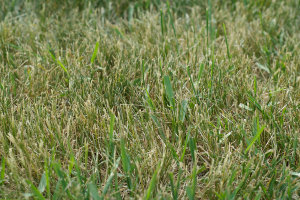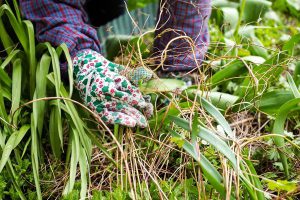 It is mid-June. The weather in Jacksonville | northeast Florida continues to be hot and dry. However, the National Weather Service predicts above average precipitation for June through August. So, what should we homeowners in northeast Florida be doing now and throughout the summer to maintain our lawns? Are you thinking about a xeriscape? We are! However, if your HOA insists on a lawn, or if, honestly, grass is easier for you to maintain than a garden, here are some helpful recommendations.
It is mid-June. The weather in Jacksonville | northeast Florida continues to be hot and dry. However, the National Weather Service predicts above average precipitation for June through August. So, what should we homeowners in northeast Florida be doing now and throughout the summer to maintain our lawns? Are you thinking about a xeriscape? We are! However, if your HOA insists on a lawn, or if, honestly, grass is easier for you to maintain than a garden, here are some helpful recommendations.
Summer Lawn Maintenance Tips
- In Duval County, continue watering your lawn, when needed, in accordance with the city’s watering ordinance. Residential addresses with an odd number may water on Wednesday and Saturday and addresses with even numbers may water on Thursday and Sunday. Non-residential irrigation is permitted on Tuesday and Friday. The best time to water is in the early morning which will give time for water to be absorbed by the roots before it can evaporate, and it will help reduce disease problem by reducing the time it stays wet. Make sure to apply ½ to ¾ inch to encourage a deep root system; overwatering is not helpful and can lead to root diseases.
2. Mow your lawns at the highest recommended height for your grass. St. Augustine grass can be mowed at 4 inches (dwarf types to 2 ½ inches), Zoysia grass is mowed to 2 inches, and Bahia grass to 4 inches. The correct height helps shade the runners while helping to conserve moisture by slowing evaporation. Also, make sure your mower blade is kept sharp so it cuts the grass blades cleanly, and the grass will heal quickly.
3. Check your lawn regularly for pests. Chinch bugs and lawn caterpillars, such as sod webworms, are common pests found in lawns during the summer. Make sure you correctly identify the pest before applying any treatments. Spot-treat only the infected areas, and remember to follow all label instructions. For more information and control options, go to edis.ifas.ufl.edu/publication/ig001.
4. Summertime lawn diseases include large patch, pythium and take-all root rots and various leaf spots. Most diseases can be prevented by taking care of your lawn properly by watering, mowing and fertilizing properly. Once disease symptoms are seen, control can be difficult. Proper identification of the disease is necessary before applying any fungicides. If you need help identifying disease problems, you can take a sample of the affected area to Duval County Extension Office.
5. If the lawn is growing quickly don’t apply fertilizer during the hot summer months. Fertilizer applications should have been made in the springtime. If the lawn needs greening up, apply iron sulfate in a liquid form. Follow label directions for application, mowing and watering when applying iron sulfate.
 Finally, weed control options during summertime are limited. Many herbicide products do not recommend application when the temperature is above 85°F since the lawn could be damaged or even killed. Use herbicides to spot treat lawn pests only when needed. An application of preemergent herbicide in late winter can help prevent some weeds. Hand removal of weeds is a practical and environmentally sound method of weed control. It is important to pull the whole weed, including roots, to ensure the weed won’t grow back. Studies have shown that weeding can be therapeutic. The key is finding something comfortable to sit on… and for some of us, something fun to listen to. A podcast or book on tape can make the whole task feel quite pleasurable!
Finally, weed control options during summertime are limited. Many herbicide products do not recommend application when the temperature is above 85°F since the lawn could be damaged or even killed. Use herbicides to spot treat lawn pests only when needed. An application of preemergent herbicide in late winter can help prevent some weeds. Hand removal of weeds is a practical and environmentally sound method of weed control. It is important to pull the whole weed, including roots, to ensure the weed won’t grow back. Studies have shown that weeding can be therapeutic. The key is finding something comfortable to sit on… and for some of us, something fun to listen to. A podcast or book on tape can make the whole task feel quite pleasurable!
If you have any questions about lawns and gardening, you can contact the Duval County Extension Office at 904-255-7450. Master Gardener Volunteers are in the office Monday through Friday from 9:00 am to noon and 12:30 pm to 3:00 pm. This article was curated by Master Gardener Volunteer, Walter Bryant.
 1
1
